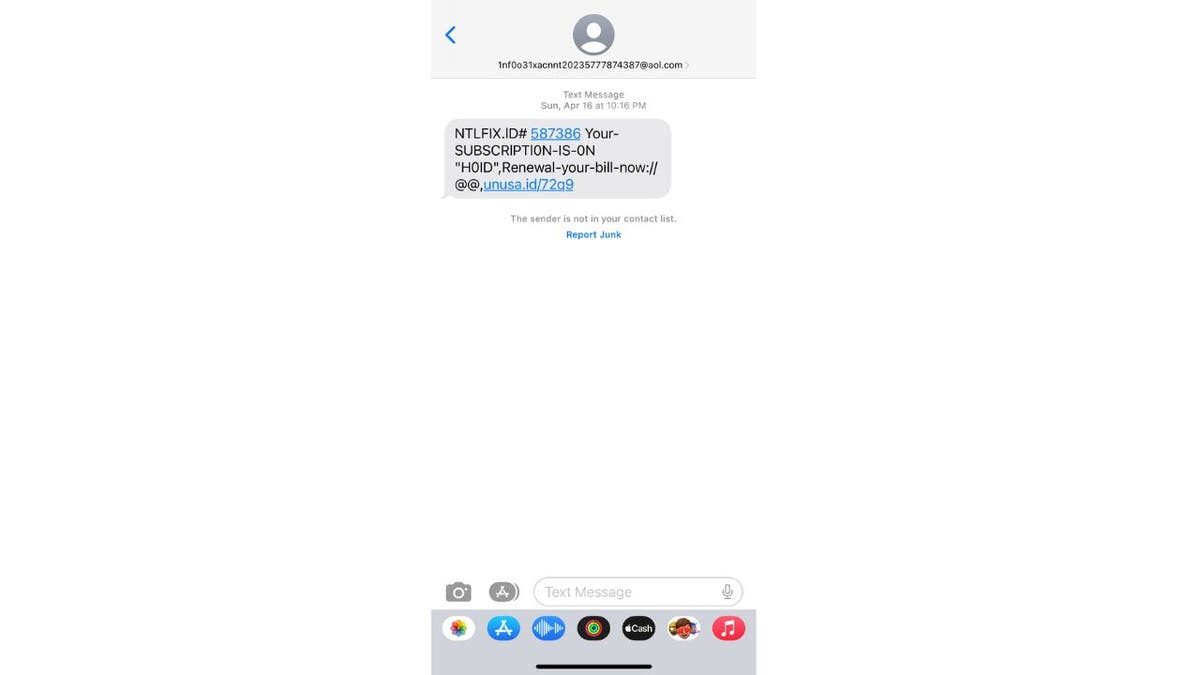Black Friday is the proper time to choose up vacation items at a reduction. It’s additionally the probably day of the yr to fall sufferer to a rip-off on-line, based on the director of Norton’s Scam Research Labs.
About 50% of on-line customers every year are swindled by varied schemes to steal cash or information, Norton’s Leyla Bilge advised Fox News Digital. Of these heists, she mentioned, 30% happen on Black Friday, 16% happen on Christmas Day, 14% happen on Christmas Eve; and 11% happen on Cyber Monday.
But as customers reap the benefits of vacation offers, the cybersecurity firm’s analysis lab has recognized the commonest on-line scams, and Bilge shared tips about easy methods to evade each.
TIPS TO HELP YOU TELL IF AN ONLINE STORE IS REAL OR A SCAM

Shoppers seek for Black Friday offers at South Coast Plaza on Nov. 25, 2022, in Costa Mesa, Calif. (Gina Ferazzi/Los Angeles Times by way of Getty Images)
1. E-shop scams
Bilge mentioned “hundreds” of pretend retailers pop up on-line every year.
“It’s very easy to create a fake e-shop that looks really realistic. The look and feel is amazing. You won’t be able to spot it really easily. So even us, sometimes we struggle to figure out if something is real or not,” Bilge mentioned. “You have to think twice with scams because they’re really complicated and sophisticated now, especially with AI. Things are becoming much more powerful.”
But widespread sense, new instruments and some ways can be utilized to identify them.
One signal that a web-based retailer is likely to be pretend is that their offers are “too good to be true.”
“If something is sold for, let’s say, $100, you’re not going to get it for $10,” Bilge mentioned. “So it’s not you’re never going to have [a] 90% decrease discount, but typically, you get these kind of crazy discounts on such websites.”

Fake e-shops, bogus charities and “smishing” are a few of the most typical strategies scammers use to reap the benefits of customers across the holidays. (Kurt Knutsson)
Oftentimes, Bilge mentioned, cost pages on these pretend websites will present helpful clues.
“Typically, on the first page you’ll have like they will always tell you that you will be able to pay with everything possible, PayPal, with Google, Google Pay or Amazon or Apple Pay or, you know, Visa, Mastercard and so on,” Bilge mentioned. “But when you actually check out … they will either tell you to pay with a gift card because it’s difficult for us to trace … or they will tell you to do it with PayPal.”
“If you see these kinds of inconsistencies between the first page and the last page, you have to be very careful,” she continued.
Taking a take a look at the URL of a web site can even assist, Bilge mentioned.
“Let’s say that [the fake e-shop] might be an Amazon imitation,” she mentioned. “You might want to go and check whether the website’s name actually fits the brand, because let’s say you would have Amazon.com, [their website could be] Amazonbeautifulverycool.com, something like this.”
Paying consideration earlier than capitalizing on a beautiful deal might save your pockets and personal info, she mentioned, and so can trying into the vendor itself for those who’ve by no means shopped there earlier than.
“You might want to be really careful and cross-check with third-party organizations that are actually kind of providing reviews about our organizations,” Bilge mentioned. “We actually have an AI-powered chatbot, which we call Norton Genie, that a user can easily just cross-check.”

About 30% of customers on Black Friday fall sufferer to scams, based on Norton information. (iStock)
6 SNEAKY GIFT CARD SCAMS TO WATCH OUT FOR THIS HOLIDAY SEASON
Shoppers can even crowdsource to identify cons. Reddit’s rip-off subreddit, Reddit.com/r/scams, has practically 1 million subscribers, lots of whom will shortly reply queries about suspicious web sites from expertise or utilizing their very own tech know-how.
A fast Google search will typically expose pretend e-shops as nicely. The Better Business Bureau additionally has a searchable checklist of accredited and non-accredited companies that can be utilized.
Always search for the lock icon within the browser deal with bar, indicating that the web site is utilizing a safe connection. You can even test the web site’s URL to see if it begins with “https” as a substitute of “http,” which might additionally point out a safe connection.
Finally, test the corporate’s web site for a bodily deal with and telephone quantity. If you’re uncertain about its legitimacy, you are able to do a fast Google Maps search to see if the enterprise pops up.
2. “Smishing” package deal supply scams
Many customers obtain the next quantity of packages across the vacation season as they order items from family and friends.
But this makes them extra vulnerable to “smishing” scams: pretend textual content messages or emails from UPS, the U.S. Postal Service or Amazon, and many others., despatched by fraudsters to gather private info.
“They will tell you there is a problem with your payment, or you have to make an additional payment so they can actually steal your money,” Bilge mentioned. “Or they could try to actually compromise some personal information so they can use it for a different type of attack that can happen later on.”
One methodology to identify these scams is to take a better take a look at the telephone quantity or e mail deal with that the correspondence is coming from.

Smishing is a rip-off by which a scammer will try and mimic a good firm by way of textual content message. (CyberMan.com)
DON’T GET CAUGHT IN THE ‘APPLE ID SUSPECTED’ PHISHING SCAM
“You can check the sender or email address. In most cases, there will be some random characters and numbers@gmail.com, which is really suspicious. I mean, that’s never going to happen,” Bilge mentioned. “You will never get that email from Amazon or UPS with an email like that.”
Generally, emails like this may be ignored. According to the U.S. Postal Inspection Service’s web site, it is not going to ship clients or textual content messages and not using a buyer first requesting the service with their monitoring quantity. Even if emails are requested, the company mentioned, these correspondences won’t ever include a hyperlink.
“If you did not initiate the tracking request for a specific package directly from USPS and it contains a link: don’t click the link,” the Postal Inspection Service wrote.

Black Friday purchasing (Daniella Heminghaus/USA TODAY NETWORK/File)
3. Charity scams
Thieves will typically impersonate well-known charities by way of e mail or textual content or by utilizing pretend web sites. They can even fully fabricate charities for noble causes to idiot unsuspecting donors into misspending their hard-earned cash.
One option to spot a bogus charity is the way in which they correspond with you, based on the Federal Communications Commission (FCC). Although charities are exempt from the nationwide Do Not Call checklist, they need to comply for those who ask them to cease calling you, the FCC wrote on its web site.
ROMANCE SCAMS ON THE RISE AS AMERICANS LOOK TO DATING APPS FOR LOVE: 5 TIPS TO PROTECT YOURSELF
The company additionally suggests verifying telephone numbers and URLs for charities earlier than donating to them. Services like Norton Genie and even Google and Reddit.com/r/scams could be useful instruments in doing so.
The FBI’s Philadelphia bureau wrote in a warning to customers that donations ought to at all times be made by way of test or bank card.
CLICK HERE TO GET THE NEWS APP
“If an organization asks you to donate through cash, gift card, virtual currency, or wire transfer, it’s probably a scam,” the company wrote.
Donors ought to be cautious of charities that declare to assist victims of latest high-profile disasters and to double-check the title of the charity to make sure that it doesn’t have a “copycat name.”

